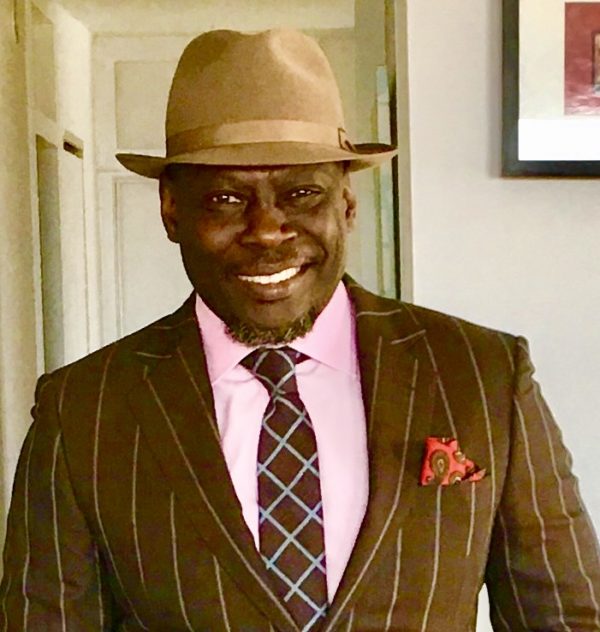
After weeks of trying to stream the pandemic away, maybe you’re realizing that there is nothing like a good novel to truly escape the constraints of time and space.
Your “To Read” stack is glaring at you from its neglected spot on the shelf while your old friends are crying out to be read again, saying you misunderstood them last time. The ghosts in your home also have recommendations, but unfortunately never quite to your taste.
At this point you need an expert to weigh in. Renowned scholar and President of the African Studies Association, Ato Quayson, has you covered with his “Annotated Reading List: Books to Enrich Your Social Distancing.”
Below is a sample to get you started!
Chinua Achebe, Things Fall Apart
This is deservedly one of the most widely-read books in African literature. Okonkwo’s suicide at the end is conventionally interpreted as the outcome of the unhappy encounter between colonialism and a viable African culture. Few note the fact that Okonkwo has a very bad stammer, and that in a culture that prizes language and its multiple usages, his stammer is a great disability. Thus, when he beheads the district commissioner’s messenger close to the end, he does so against the background of his clan’s meeting at the ilo (or marketplace) when various clan leaders make speeches weighing the pros and cons of taking the battle to the white man. But what happens when we re-read the entire novel through a perspective of disability?
Wole Soyinka, Death and the King’s Horseman
This play by the Nigerian Nobel Laureate is one that I think satisfies many of the terms on tragedy laid out in Aristotle’s The Poetics. But the play has one element that eluded Aristotle in his account of tragedy, and that is that it has a highly elaborate soundscape of different kinds of drumming from the beginning to the end of the play. (Aristotle discounts music entirely as a significant element and focuses his attention exclusively on plot, which he describes as “the soul of tragedy”). The drumming in Soyinka’s play not only acts as an intricate modulation of the action, but, for those who understand African drum talk, a potential character in itself since it “speaks” in various ways to both augment and perhaps thwart the meanings unfolding in the foreground of the play.
Fiston Mwanza Mujila, Tram83
Sticking with the theme of music, Mujila’s novel is best read with some jazz, rhumba, hiphop, or afrobeats music playing low in the background. Mujila has said that he wrote the novel to jazz music, and there is evidence of musicality everywhere to be found, from the central place of the Tram83 club to the highly rhythmic prose that combines lyrical interludes with repeated refrains of “Have you got the time?” I am going to leave you to find out what this apparently innocuous question refers to.
Alain Mabanckou, Broken Glass
Mabanckou’s novel is distinctive for not having a single full stop in the entire novel either in the original French or in the English translation. It is set in a drinking bar called Credit Gone West in the capital of modern-day Congo Brazzaville and focuses on the eponymous protagonist’s strenuous attempts to write down the biographies of the bar and of all its regular attendees while much of the time himself drunk. Like Mujila’s novel, Broken Glass is a trenchant critique of the postcolonial nation-state but without the sense of bitterness that marked an earlier generation of such critiques from the likes of Ngugi wa Thiong’o, Ayi Kwei Armah, Wolle Soyinka, and Yambo Ouologuem, among others. But what amounts to a splitting of the sense of post-Independence malaise away from the description of conditions of material disaster and decrepitude that marked the novels of the late-60s and early-70s also means that the form of the African novel has been freed to do other things with the idea of critique.
Tsitsi Dangarembga, Nervous Conditions
This classic of feminist African literature is a must-read for anyone interested in seeing the intersection between late colonialism, patriarchy, female rebellion, and the nervous conditions of its title. What reads on first encounter as a coming-to-age novel really defines two distinct developmental arcs: one is that of the narrator Tambu, who escapes from the homestead and is desperate to get an education and thus enjoy all the benefits of colonial modernity, and the other is that of Nyasha, her widely-read cousin who has gazed at the existential abyss that is her Western education and instead sets up a series of running p battles against her father, the redoubtable headteacher and patriarch Babamukuru. The cousins live together under the tutelage of this tyrant, but that they are moving in opposite directions in their understanding of colonial modernity is one of the superb gifts of this insightful novel.
Click here for more recommendations from Ato Quayson!














COMMENTS -
Reader Interactions